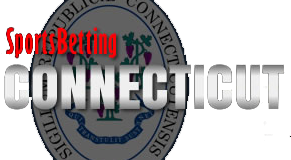Connecticut Lottery Corporation Is Primed To Offer State Sponsored Sports Betting
 Representatives from the Connecticut Lottery Corporation say the organization is geared up to start offering a sports betting option for its players.
Representatives from the Connecticut Lottery Corporation say the organization is geared up to start offering a sports betting option for its players.
The big reveal came on Monday, April 3, at the first public hearing on the Constitution State’s new Senate bill that would legalize sports betting held by the Finance, Revenue and Bonding Committee. Connecticut’s Senate Bill No. 540 (S 540), which authorizes sports wagering in the state to the extent permitted under federal law, delegates responsibility for running the show to the state’s Lottery Corporation. Perhaps the juiciest bit of news to come out of the public hearing for the proposed bill is that, according to the language contained in the draft, the Connecticut Lottery Corporation will be able to offer a full menu of sports wagering options for players.
“The CT lottery has a long history of providing adults throughout the state with a wide array of different games and play styles, giving players the ability to choose whatever games they find the most appealing,” said Connecticut Lottery Corporation Director of Information Technology Steve Wagner via a media release from his office. “Sports betting would just be another option.”
In fact, the proposed bill is so expansive in terms of its allowable sports betting offerings that Connecticut gamblers could be looking at a truly wide open wagering experience on the same level as that enjoyed by visitors to the Las Vegas Strip. On the table are provisions to permit sports betting activities at brick and mortar sportsbooks, casinos, horse racing tracks (and their affiliated off track betting facilities) and, most interestingly, at the lottery’s internet site (which will also offer online lotto purchases for the first time) and via mobile sports betting apps. The CT Lottery Corporation is ideally suited to step in and start making these options available in the near term – provided the federal laws that would prohibit Connecticut from legalizing sports betting in any form are struck down, as it appears increasingly likely will happen.
The Connecticut lotto has a longstanding working relationship with Scientific Games, an electronic gambling developer that created the systems the Lottery Corporation will use for its proposed in-person sports betting product offerings. Scientific Games is similarly expected to be the source for the technology needed to offer online sports wagering products and the internet based lottery that Connecticut is due to roll out sooner rather than later. The company has plenty of experience offering these sports betting platform development services to states, as it powers the tech used by Delaware, one of the four states that the Professional and Amateur Sports Protection Act of 1992 (PASPA) permits to regulate sports betting) for its relatively long running online parlay sports betting option.
Connecticut’s proposed bill, while not yet to the stage that it can be put to the vote and passed on to the governor’s desk for signing into law, shows a lot of promise. That is particularly with regard to the fact that S 540 hews closely to the so called “modified blueprint” formula adopted by some states looking to regulate sports betting. The upper leadership of the NBA and Major League Baseball and the combined forces of the two leagues’ joint lobbying effort produced a blueprint for their idealized sports wagering legislation at the state level with only middling success, and partly because there were simply too many requests (really more like demands) on their part.
For instance, the leagues’ blueprint called for unpopular inclusions like an “integrity fee” worth 1 percent of the sports betting handle in a given state (which works out to roughly 20 percent of adjusted gross revenues) to be paid out directly to them. That amounts to a rent or a royalty for the sportsbooks’ “use” of the league’s product, and the fee would stack on top of the normal tax rate set by each individual state, leaving it as not much of a winning proposition for the sports betting operators themselves. The state legislatures of New York and Kansas followed a similar route as Connecticut in rejecting the inclusion of such a high percentage of the handle going toward an integrity fee and limits the ways in which the NBA and MLB (and presumably other pro sports leagues) can control betting data. West Virginia, the only state to actually pass a law legalizing sports betting thus far in 2018 doesn’t make a provision to pay the leagues a fee at all.
Needless to say, the leagues and their lobbyists were not exactly happy with the changes made to these proposed state laws, but they more or less got on board however reticently. The NBA and MLB’s lobbyists testified as to their trepidation about supporting Connecticut’s “modified blueprint” approach during the Senate Finance, Revenue and Bonding Committee hearing earlier this week. Nevertheless, the lobbying arm of the two leagues – crucial stakeholders both, as they, along with the other major leagues and the NCAA, were vociferous proponents of PASPA and worked to get it passed back in the early ‘90s – eventually came around and supported S 540.
Other similarly reluctant supporters of the rough ideas contained in the Connecticut Senate’s sports gambling regulatory legislation are the Constitution State’s Mohegan and the Mashantucket Pequot tribes. Representatives of those tribes, which have an exclusive gambling compact with the state and operate Connecticut’s most profitable and well known casino properties, such as the Mohegan Sun and Foxwoods, were even more staunchly against the idea of an integrity fee payout to the leagues than were the state lawmakers themselves. Even if they are strongly in favor of sports betting and internet based gambling of all types as a way to boost their already impressive bottom lines, the tribes bristled at the thought of having to pay the leagues what one representative of the Foxwoods casino described in a written testimony as an “absurd” measure.
This issue of integrity fees and the need (or lack of necessity) for them is a sticking point with just about everyone involved in the sports betting legalization question – everyone except the leagues, that is. The assumption that integrity fees are needed to better ensure professional sports are kept free from widespread fixing or betting rackets does not get much traction with either the states (which want the fees reduced) or the tribal gaming authorities (which don’t want to pay them at all). The tribal representatives contend – and we think quite rightly so – that integrity fees as requested are largely unnecessary for their stated goals, as a legalized and regulated sports betting industry is inherently easier to keep clean than an unregulated one as currently exists. Furthermore, if the finalized version of S 540 does contain an integrity fee upon passage the associated costs would have to be passed along to consumers by the sportsbook operators, which could have the negative consequence of driving would be legal sports bettors to continue to use offshore sports betting platforms not regulated by the state.
While there is no doubt on anyone’s mind that the support of the pro sports leagues is a valuable asset for any state wishing to pursue a legalized and regulated sports betting industry in what appears to be a rapidly approaching post-PASPA world, the support of the tribes is even more vital. Tribal casino operators in Connecticut have contributed in excess of $7.5 billion in revenue for the state since receiving their exclusive gaming authorization rights, which include a provision to give fully a quarter of all revenue generated by slot machines to the state.
Connecticut’s legislators are unlikely to tread heavily when crossing the metaphorical thin ice of the tribes’ concessions. Let’s face it: lawmakers really do not want to have to return home to their constituencies with the news that they gave up a guaranteed 25 percent cut of the incredibly profitable slot machine revenues just to curry favor with the NBA and MLB. However, if the state’s senators and representatives play the hand they have been dealt with some care and thought to future agreements, they could end up in a highly favorable situation in which they have to pay next to nothing to the leagues in royalties and still give the tribes exclusive sports betting rights.
While all these details haven’t yet been worked out, it remains clear that the conversation is moving forward in the Constitution State even as the U.S. Supreme Court appears to be heavily considering striking down the overreaching but largely toothless PASPA. This could be the mutually advantageous situation that all parties from the states to the gambling operators to the leagues have long been search for, and states like Connecticut are leading the way. Time will tell how everything will turn out in the end for sports betting in CT, but the early indication look good for a favorable outcome if the stakeholders can agree to make enough compromises to keep their compatriots satisfied just enough.
| Best Connecticut Sports Betting Sites - 100% Trusted + Safe |


